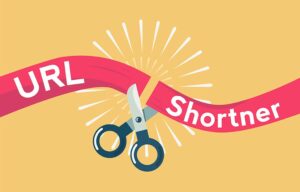Tagging is a great way to make your website more user-friendly; if your products or services are easily located and organised, it makes for a much simpler user experience, and therefore more sales. Win-win, right?
Not so fast. While tagging your products can certainly help elevate the user experience on your website, it’s important to place your tags strategically. Even more importantly, you need to make sure your Shopify store is optimised in other ways – tags only make up a small percentage of the task.
So, when it comes to your site’s Google ranking, do Shopify tags actually help SEO? In short, it depends.
In this article, we’re going to take a look at how product tags on Shopify can impact your store’s SEO performance, what not to do, and how you can use Shopify tags to improve your ranking and overall UX. Let’s take a look!
What are Shopify Product Tags?
Shopify product tags are, in short, digital labels assigned to different products in your eCommerce store. Tags exist to help organise your product inventory for your customers; for example, if you were running a clothing eCommerce store, you’d want to organise your products with labels such as “skirts”, “dresses” “women’s clothes” “men’s shirts”, and so on.
Tagging makes it easier for customers to navigate your store, and a positive user experience translates to a higher number of transactions.
Do Shopify tags help SEO?
In short, yes – but it’s important not to overestimate their importance. Typically, Shopify tags can help your site’s SEO performance in two main ways:

User experience
As mentioned above, user experience is always going to be a key factor when it comes to any SEO optimisation efforts. Google rewards sites with a low bounce rate, so if your customers can’t find what they’re looking for and click off after a short period of time, this is going to negatively impact your ranking.
Having a well-organised website with a well-tagged inventory is going to prevent this, and will render the overall shopping experience more positive for your customers.
Google indexing
As you probably already know, Google indexes all web content and organises it according to its most relevant category; by adding Shopify tags to your products, you can help Google better understand where to place your site, in turn helping your business rank within its correct niche.
When can tagging be bad for SEO?
When it comes to SEO, Shopify tags aren’t going to be the most important feature that you’re going to want to optimise, at least not when it comes to the technical side of SEO. While UX is incredibly important for your ranking, your tags need to be placed strategically in order for them to positively impact your site’s performance. But you cannot rely on tags to do the heavy lifting alone – in fact, using only tags can often result in your site being penalised by Google.
This is because you can’t “stuff” your product pages with tags and no other content, as this would be seen as both duplicate content and keyword stuffing – both of which are two poor SEO techniques. Google is now incredibly unforgiving towards shoddy SEO practices, which is why it’s always a good idea to consult with Shopify SEO services before beginning any DIY optimisaton campaign.
Put simply, in order to create SEO-optimised product pages, you’ll need to ensure that your pages are filled with engaging, unique content. Once this has been achieved, you can add Shopify tags. Tags will make it easier for users to find the product categories they’re looking for, and will also help Google better index your website pages.
The bigger picture
When it comes to good SEO, there’s no “miracle” technique that’s going to get your site ranking overnight. SEO is a marathon, not a sprint, and it’s also a comprehensive strategy that covers several bases.
Not only do your product pages need to promote unique content, you’ll also need to consider title tags, alt text, meta descriptions and more. All of these features are incredibly important when it comes to your site’s SEO performance, so it’s important not to rely on tags alone to get your website seen.











